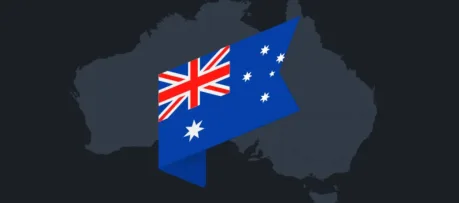Have you been served with an Application for Spousal Maintenance? What on earth does it mean?!
By Elise Fordham, Senior Associate at Watts McCray, Parramatta
We’ll explore it all in this post, so keep reading.
What is spouse maintenance?
Spousal maintenance (also known as spouse maintenance) is an order that the Court has the power to make where:
- The first party does not have the funds to support themselves adequately; and
- The second party has the ability to pay the first party to rectify this inadequacy.
The primary purpose of spousal maintenance is to adjust for any disparity between the incomes or earning capacities of the parties to a relationship based on their respective needs. A spousal maintenance order can be made for the second party to pay a weekly, monthly, quarterly or yearly amount to the first party, or it can be an order for the first party to live in a property with the second party to pay for some or all of the property expenses, or it can be an order that the second party pay the first party a lump sum payment.
Spousal maintenance is usually in place for a relatively short period after separation to allow for the recipient of spousal maintenance to re-train, to enter the workforce and generally re-establish themselves solely. The Court does not make long-term spouse maintenance orders, as the Family Law Act requires that the financials of separated parties be completely separated.
If you have received court documents in which your former spouse is asking the Court to make an order that you pay them spouse maintenance there are a number of important things you need to be aware of.
The time limits for asking the Court for a spousal maintenance order
Firstly, is the spouse maintenance application filed in the required time limits? An application for spouse maintenance needs to be filed 12 months after the date of a divorce order being granted after a married relationship, or within 2 years from the date of separation for a de facto relationship, or during a current marriage. If the application is filed within these time limits, then the application can proceed.
If the application is filed outside of these time limits, then the first party (who filed the application, known as the applicant) must justify to the Court that their application must proceed, despite being out of time. This permission is not guaranteed.
What do I need to do before the first court date?
If the spouse maintenance application proceeds, you will need to provide evidence of your financial circumstances. You can provide evidence by completing and filing a financial statement, an affidavit and exchanging with your spouse’s legal representatives the required financial disclosure. We suggest you contact our office for help in preparing and presenting your evidence.
The Federal Circuit and Family Court of Australia (Family Law) Rules 2021 also set out the documents that you must provide to the other party before the first court date. Specifically, Rule 6.06(3) – Duty of disclosure sets the types of information that must be provided to the other party, Rule 6.06(8) lists documents that must be provided for any person involved in an application for property settlement, and Rule 6.06(9) lists the documents that must be provided by party’s who are only a party to a spousal maintenance application (and not property settlement).
What is the process if the application for spouse maintenance proceeds?
When the application comes before the Court, it will be heard by either:
- a Judge;
- a Senior Judicial Registrar; or
- a Judicial Registrar of the Federal Circuit and Family Court of Australia.
To determine an application for spousal maintenance (and whether it succeeds or fails), the Court will consider; if you, the payer has capacity to pay the order (by looking at your income, your assets and your financial resources) and will determine whether you have a surplus after paying your reasonable expenses.
The Court will also look at whether you have minimised your income to avoid an order, or whether you have transferred assets into other people’s or company names, and will look at whether you have the control of assets or income that is not in your name (i.e. in a company or a Trust).
If it determines that you have the capacity to pay the order, then the Court will proceed to assess the other parties’ income and expenses to work out what their ‘need’ is – i.e., what amount is required so that they can support themselves adequately.
A spousal maintenance order is only for the financial support of your former partner, and does not include expenses for children or other members of the household; those expenses are disregarded.
For the purposes of a spousal maintenance application, any government benefits received by your former partner (i.e. Jobseeker, Family Tax benefits, etc.) are not counted towards the calculation of their income but are instead excluded from any calculations.
The Court has the power to make spousal maintenance orders on an interim, final or urgent basis. Urgent applications for spousal maintenance are dealt with in a slightly different manner to the above; if you are facing an urgent application for spousal maintenance you should contact our office for prompt advice and representation.





